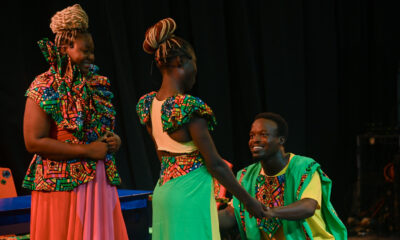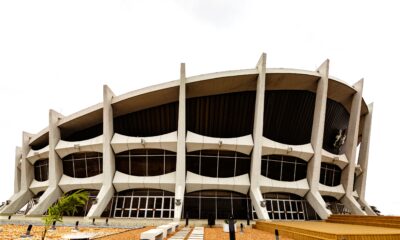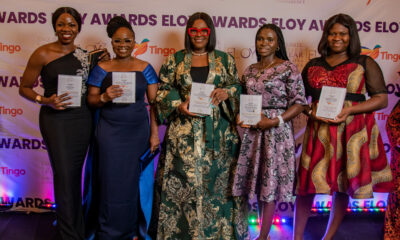Features
Qudus Onikeku On Glover Hall and the Lagos Cultural Revolution

The story I’m about to recount is my attempt to make sense of my journey in and out of Lagos, in the world and how my company, The People Centre came to be at the centre of the revival and management of one of the most important historical and cultural sites in Lagos, Glover Memorial Hall (1887).
My name is Qudus Onikeku, I am a movement artiste and a community organiser. I work at the intersection of body memory and a futurist practice that centralises Yoruba philosophy of aesthetic. The eclecticism of my body of work has enabled me to collaborate with people from diverse backgrounds and disciplines. I have had an enviable career which has taken me to over 56 countries. I have been a visiting professor of dance at the University of California Davis and Columbia College Chicago, and I am currently an assistant professor and the first “Maker in Residence” at The Center for Arts, Migration and Entrepreneurship of the University of Florida (UF). My current research at UF, explores how AI can be deployed to help protect intellectual property; I am leading a team that is developing a $5m deep tech solution, that uses artificial intelligence, motion capture, computer vision and blockchain technology, for dancers to turn their dance into data, their data into codes, codes into IP, and IP as currency. I hope to bring this research home, to our practice at Glover Memorial Hall.
Home and away
When people hear about my achievements, they are quick to assume that I was either born with a silver spoon or grew up outside the continent. I was born in Surulere, Lagos to a working-class Yoruba family and by a twist of faith, in 2006, I received a scholarship from the French embassy in Abuja to study dance and acrobatics at the prestigious Ecole Superieur National Des Arts Du Cirque in France. Upon graduation, I started my first company, YK Projects in Paris at the age of 25. YK Projects was conceived as a cross-cultural touring company that would be open to the migrant experience. Our first production, My Exile is in My Head (2010), was a solo dance piece which explored how Nigeria had become unviable for me after my first attempt at homegoing in 2009.
That first production about the trauma of return won me several international awards and toured over 70 shows in 20 countries. In 2012, I was named the French ‘New Choreographic Talent’. This unexpected success catapulted my career to a new height. By the time I had created QADDISH, my third choreography in 2013, my company was already on the list of organisations triennially funded by the French government and headlining prestigious global venues. Despite my meteoric rise and privileged access to European cultural capital before the age of 30, I was restless and unsatisfied with this exilic triumph. I wanted more. I knew we could do more with the access and experience I had amassed. In 2013, my partner, Haji and I shut down our activities in France to make another attempt to return to Lagos, Nigeria.
This is Lagos
We arrived in Lagos in January 2014 without prior plans except the conviction that it should be possible to change the world from an African city. But Lagos isn’t any city; it is an insane, energetic, over-confident mega city. Despite growing up in Lagos, we had to feel her pulse again and re-learn her new dance. After seven months of immersion, we started The QDanceCenter. We envisioned it as a social enterprise, an incubator for artistic expressions for development in a changing and globalising world. Our primary focus was on how to invent a socialist practice, at the intersection of dance and society.
We were aware that 62% of Nigerians were below 25 years and 34 million of them were unemployed. With these dismal statistics, we saw an opportunity to transform this ticking time bomb into a historic opportunity through dance and the performance arts. We believe that this nation can be redreamed and reconditioned to do better. With our return to Nigeria, we moved from art making to art practice, we identified major societal problems and creatively seek ways to tackle them. Our thinking was partly influenced by the success of Nollywood and the success stories in music, comedy, and the fashion industry. Dance seemed not to have found its footing among the performing arts. This was both a problem, and an opportunity.
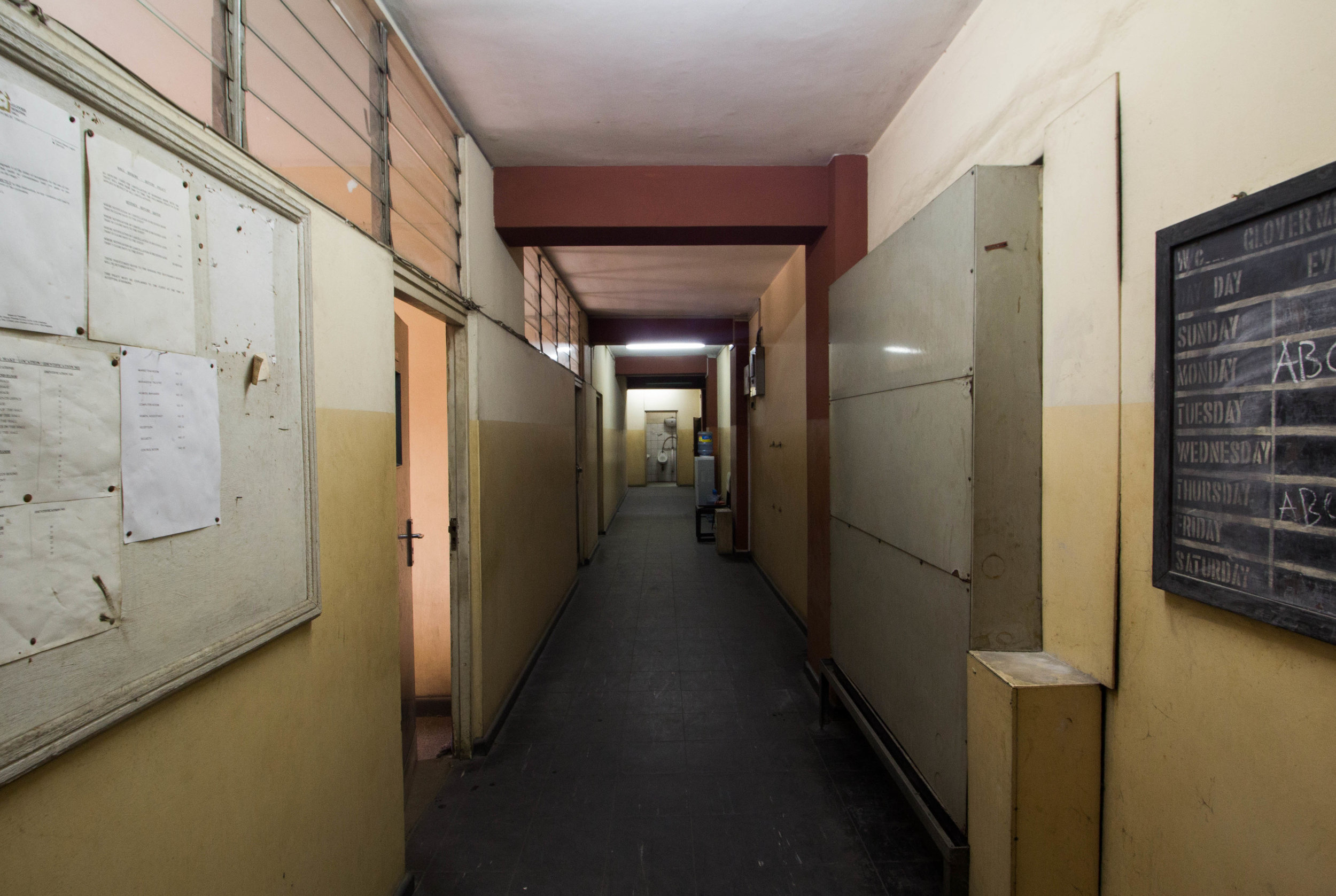
We started to think of ways to repurpose and reposition dance by turning its potential energy into kinetic energy. We designed a system of delivering our work through a four-pronged approach called the QDance ACTS: Art making, Community development, Talent development and Services. Our social experiment worked, and in less than two years, we grew to become the preeminent creative organisation in Nigeria with a global reputation, we enjoyed support from both local and global partners. In less than a decade since we started YK Projects in Paris, we have managed projects internationally with a budget of over $3m. Our encounter with then governor of Lagos State in Brussels began the rebirth of Glover Memorial Hall and our pivotal role in that renaissance.
Ambode and the Unfinished Lagos Cultural Revolution
In the summer of 2016, I was invited to Brussels to be part of a panel and to perform at the annual Summer of Photography, where Lagos was the focal city. Amongst others on the panel was Governor Akinwunmi Ambode who had come to Belgium with his wife and key members of his cabinet. During the discussion, the moderator asked him about his views on art and if he thought Lagos was ready to take the lead in Africa, his responses were illuminating. He emphasised his genuine interest in learning from the other panellists and professionals in the audience, because the creative industries were part of his election campaign mantra. I took advantage of his presence and spoke truth to power. I told him that the fact that his administration merges the ministries of tourism, arts and culture together was a clear indication of an intention. Lagos, however, had something going for it that is unique among world tourist cities: the fast pace, the creative energy and fact of it being a melting point for all the cultures of Nigeria and West Africa; its vibrant young population and eccentric nature makes it a seductive magnate for creatives from all over the world, especially from the Black world. I suggested that rather than invest in traditional tourism projects, he’d do better to invest in the creatives themselves and build infrastructure to support them.
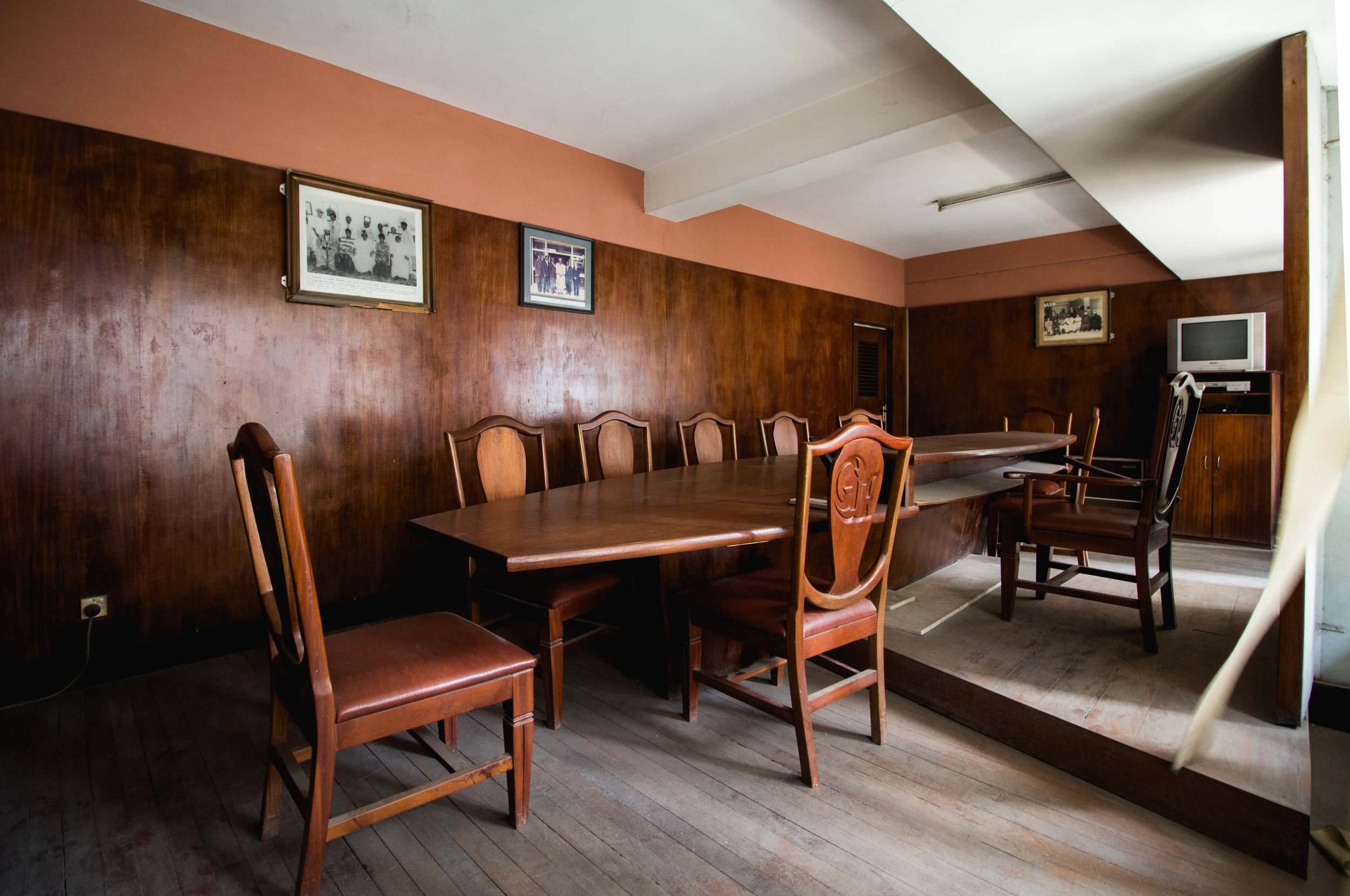
Using the QDanceCenter as a case study, I explained to him that one of the greatest hurdles for creatives, is finding a conducive space in the city to practice their art and when we did find a space, they were insanely expensive. I suggested to him that there were many abandoned buildings, both heritage sites and public properties that the state could surrender to arts organisations. With that suggestion, I wasn’t even asking the governor to renovate them, but to hand them over, for artistes to turn them into artist colonies or enclaves, provide them with basic support to create a secured environment for residents and visitors alike, to peacefully exchange and collaborate. By doing this, he will see Lagos mutate into a major creative hub in a few years. I was convinced of this because the world over, creatives have a magical way of lightening up and turning dangerous zones in a city into safe, pulsating, cultural nerve centres. At that conference, I spoke about both the economic and cultural dividends of allowing artists to occupy and reimagine derelict spaces.
After the panel, while he was being hounded by his subjects, I went to prepare for my performance, Africaman Original. Two weeks later, at home in Lagos, I was summoned to meet the governor. Three hours later, I was in his living room with three others. What followed was a two-hour long conversation where he spoke for an hour about his vision for the city’s cultural sector and his admiration for the arts and artists. I was mesmerised. He spoke passionately about the importance of soft power in Nigeria, believing that the culture industry is a key sector to achieving soft power and delivering many of the social experiments his administration was putting in place. It was at this meeting that he mentioned his intention to commission 50 public arts and build a theatre in each of the 20 local governments. He also mentioned his plan to create an endowment fund for the arts and promised to offer us a space to continue our work.
After a year of close interactions with him on cultural policy, in August 2017, Governor Ambode offered us the semi-derelict Glover Memorial Hall as our creative base and office space. He tasked us to see how we could breathe fresh air into the facility and the area while he firms up plans to get it renovated and hand it to us to fully manage. The QDanceCenter worked out of GMH from then on, and only interrupted for renovation in 2019.
Partnering Towards a Futurist Glover Hall
Glover Memorial Hall was Built in 1887 and named in honour of John Hawley Glover, governor of Lagos Colony between 1864 and 1872. Glover died in 1885, after which prominent Lagosians fundraised same year to build Glover Memorial Hall as a spot for the social and political life of Lagos. The first film in Nigeria was screened at the GMH in 1903 under the invitation of the foremost nationalist, Herbert Macaulay. It was also the venue of the launching of his political party, NCNC, and the Lagos branch of the Action Group. Community townhalls, elections and arbitration cases were held at the GMH. Notable theatre artistes such as Kola Ogunmola, Oyin Adejobi, Herbert Ogunde, and so on, also premiered their productions there. It was the venue for the infamous play Yoruba Ronu by Ogunde, from which the Western Region Premiere, Obafemi Awolowo walked out, after which it was banned by the government in 1978. The film Kongi’s Harvest by Nobel laureate, Wole Soyinka had its major screening there in 1970. GMH hosted W.E.B Dubois lecture, Duke Ellington and other jazz greats. It was ‘the spot’ when it comes to drama, dance, theatre, music, recitals and other elite gatherings in Lagos.
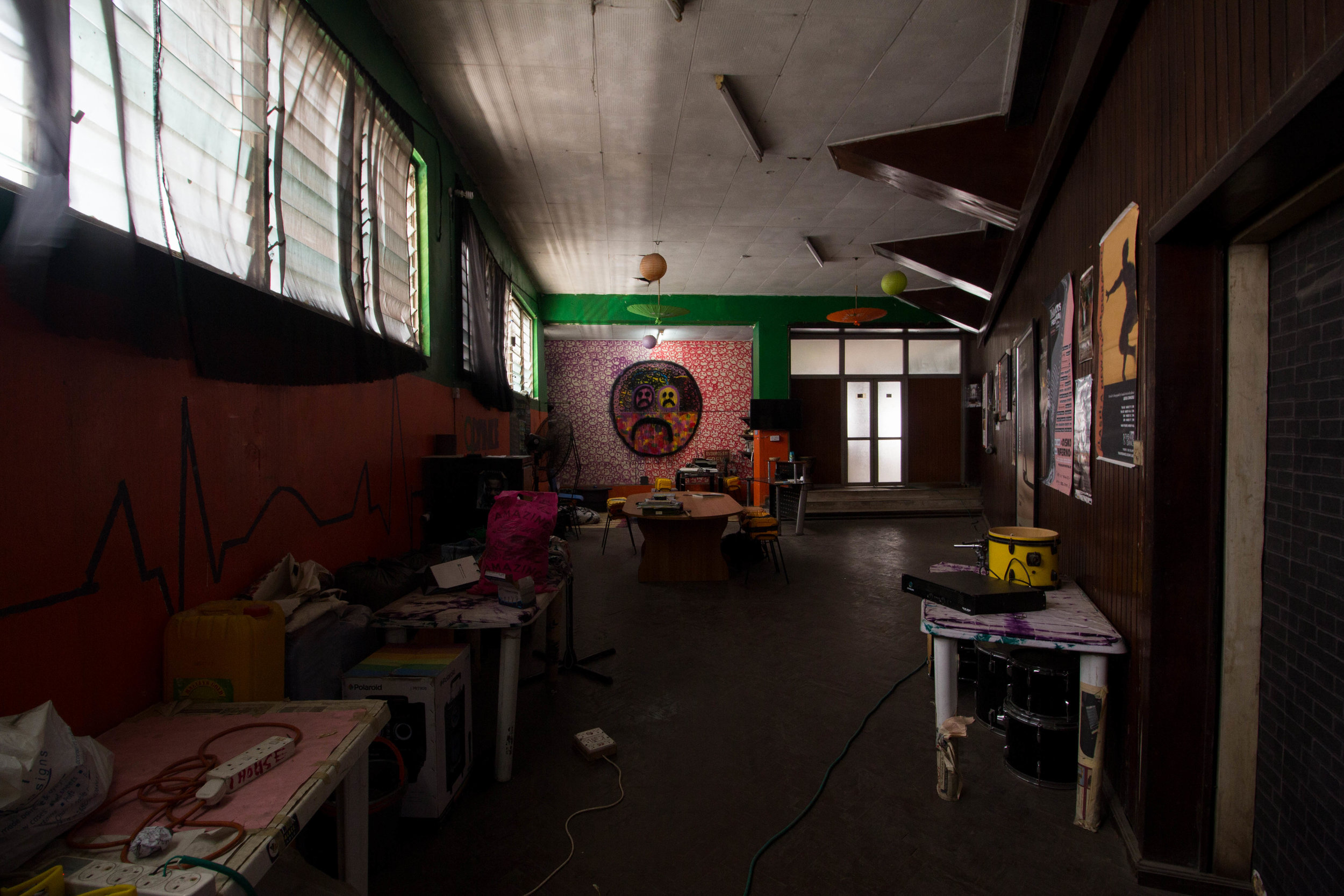
In recent decades however, Glover Memorial Hall laid in disrepair, a former shadow of itself awaiting reincarnation. In 2000, Governor Bola Tinubu’s administration renovated it and attempted a rebirth but it was unprofitable, attracting zero private investment and depended on government allocation with occasional revenue from hall rental. The facility was poorly maintained with no relevance to a new generation of Lagosians. My team and I took a keen interest in the Glover story, despite its illustrious history, the challenges for the current Glover Memorial Hall were numerous: surrounded by businesses, inadequate car parks, overshadowed by high-rise towers and a reputation for harbouring hoodlums which made it difficult for producers to put on shows. We knew these were not insurmountable challenges and we were confident that we could turn the legendary space around in less than 3 years.
By 2018, the QDanceCenter had become a hub, cultivated a network of young global black networks, backed by the global rise of afrobeats music and dance phenomenon. Nigerian creatives were becoming the shapers of global entertainment and through our work, Glover Hall was being positioned as the laboratory and epicentre for the congregation of local and international community of artists, thinkers, and culture workers. Our annual danceGATHERING (now Afropolis) was the experiment. Each themed year, the experiment attracted over 135 participants from 60 cities from around the world and Glover Hall was the laboratory. In the space, artists from different discipline gathered to plot, to experiment, to exchange, to collaborate and reimagine new ways of inhabiting the body, space, and existence. On the final weekends, Broad Street becomes an urban stage to showcase all that has been imagined during the two weeks. A big success for a city on the move!
With our occupation of Glover Memorial Hall, we were able to continue its long history as a cultural centre of the city, shedding its colonial legacy to allow something fresh and futuristic to emerge. In October 2020, The QDanceCenter was renamed as The People Centre, in order to realise our vision of transforming the facility to Glover Hall | The People Centre, to centralise the people of Lagos, Nigerians and federate all our international partners around the global phenomenon called afrobeats. We wanted to undress the space and hand pieces of it to diverse disciplines, for them to derive various content and knowledge from it, through collaboration between emerging technologies and emerging artists of this generation, who have grown to perceive technology not as something foreign, but as a tool for understanding and reshaping the future from anywhere.
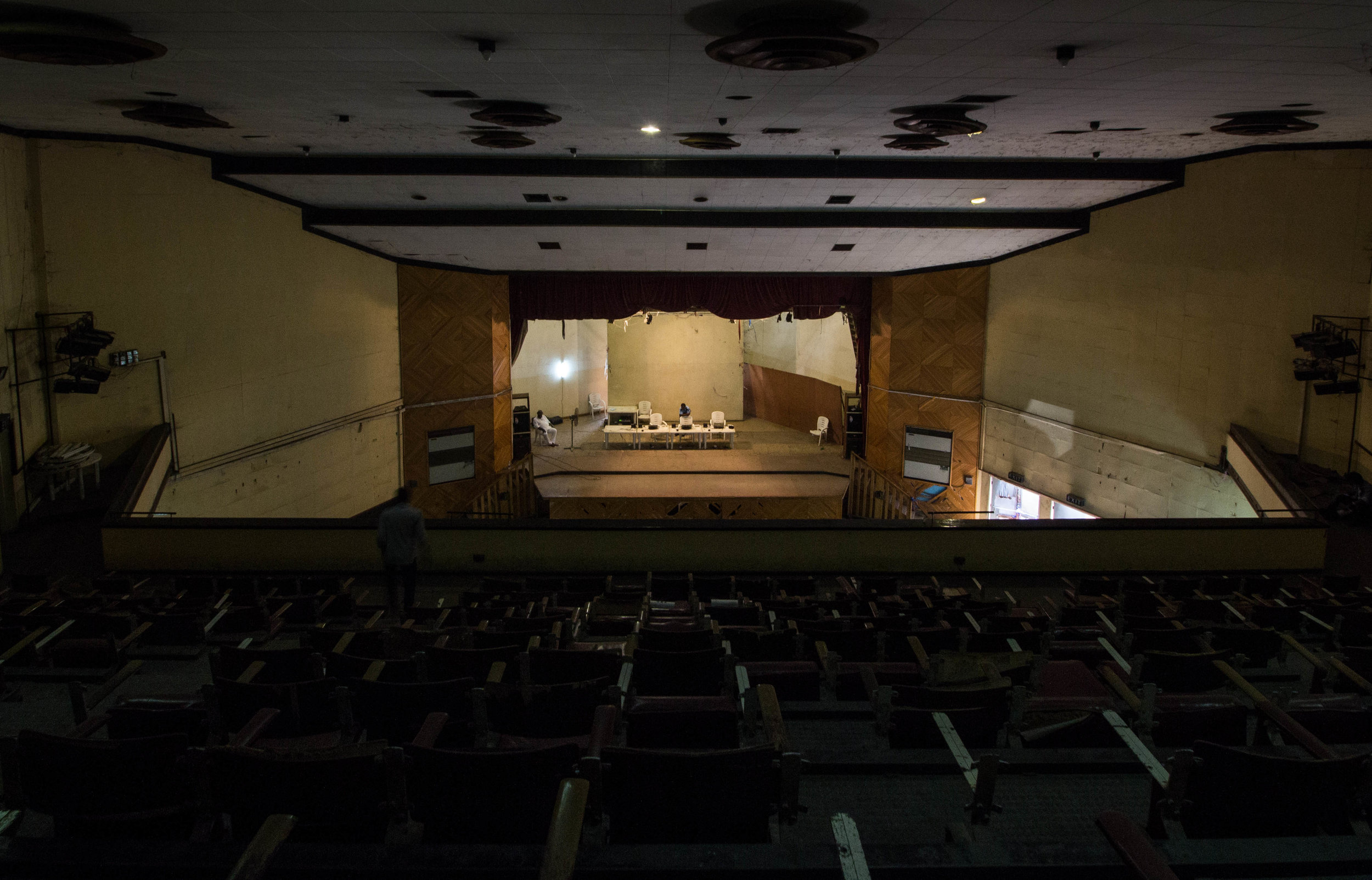
Glover Hall | The People Centre serves as a reminder of the human tapestry, the movements, the colonialism, the hyper-creativity, the lost spirituality, the innovation, resilience, and culture that we as a people have forever expressed through dance, music, food, language, fashion, fragrance etc. that this archive should be central to the formation of the Nigerian sensibility. With our joint-venture, GMH could be transformed once again into a major source of revenue and wealth creation.
This was the work we were engaged in when the Ambode’s administration, and our cultural revolution was cut short. He however managed to get the renovation started.
Sanwo-olu and the Future of Glover Hall
Few months after he won the election, and was named the 15th governor of Lagos State, I was fortunate to meet with Governor Babajide Sanwo-olu in April 2019. The purpose for the meeting was to update him on our work with Glover Hall and continued the partnership. I cautiously informed him of some of my involvement with the previous administration. We spoke briefly about the arts and culture sector and he appeared informed about my update.
I presented the governor with my proposal, along with supporting letters from five major international partners who showed in clear terms their willingness to partner once we are giving the concession. He took his time to read the documents, finally, he said, “this looks great, it shouldn’t be a biggy, go and put up a business plan and once we are sworn in, you should come present your proposal.”
The business plan was submitted on the 2nd of March, 2020 with a clear business model that will take GMH from its current state of being a “cost centre” to the state, to becoming a strategic revenue centre. After a series of back and forth, we received a letter from Lagos State government on the on 29th of December, 2020, naming us as the pre-concessioner of Glover Hall, a document that bestows on us the total management of the facility.
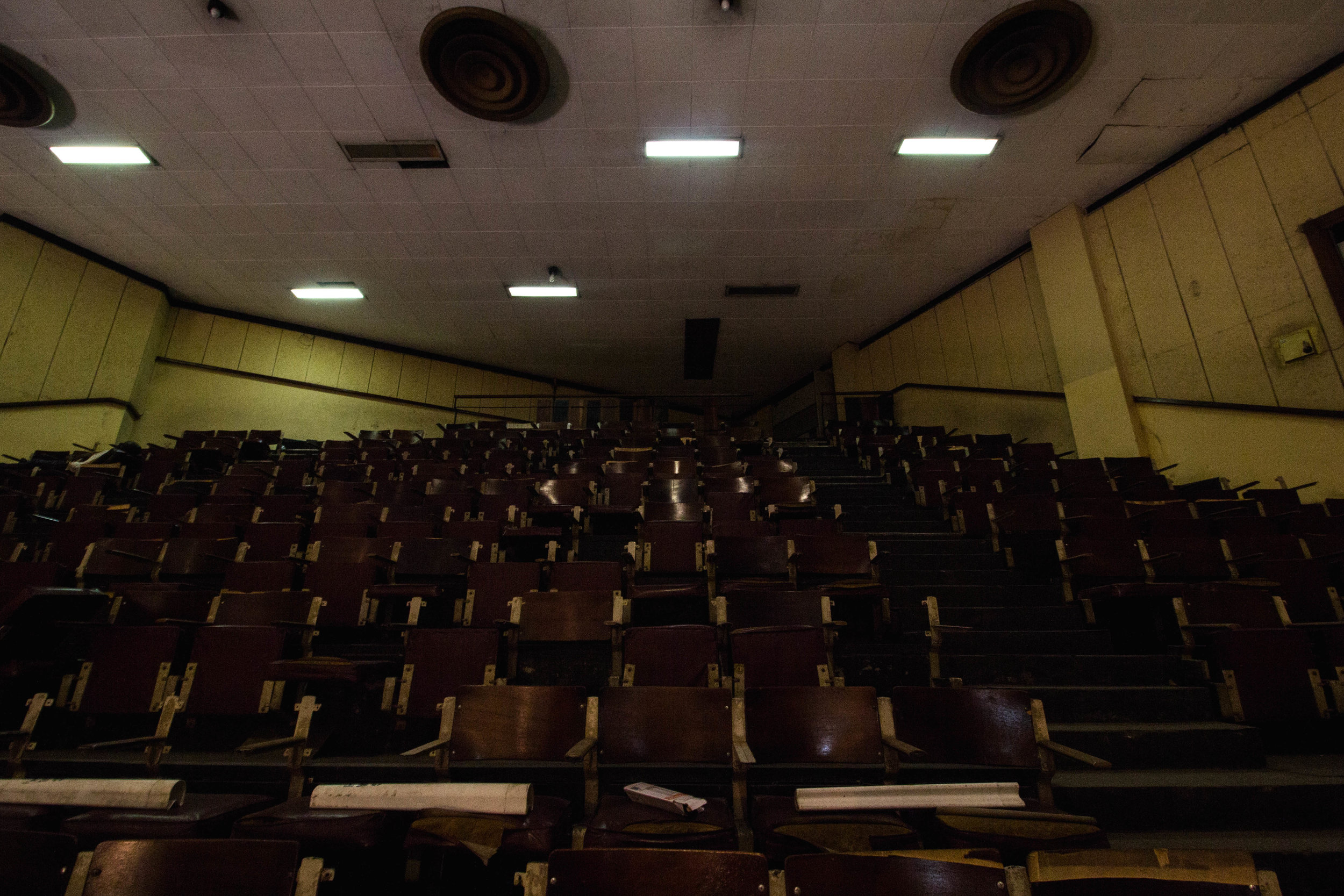
While we wait to take possession of the space, we are thrilled at what Glover Hall | The People Centre promises to become in the next 10 years. Through our youthful energy and techno-futurist social experiment, we shall develop this historical site into an example of a modern heritage living museum, our programs will enable artistes, producers and culture workers to have a sanctuary and an exhibition space in Lagos, our interest will span across performing and live arts, visual and literary arts, film, photography and historical archives, and other techno-cultural interactions with cutting edge technology. This is another reason to believe that things are happening in and from Lagos. In January 2021, we made history by premiering Re-Incarnation at the prestigious Centre Pompidou in Paris, followed by an European tour this summer; this is the first time afrobeats dance will be brought onto the world stage. In March 2021, Glover Hall was commissioned in the same month where two Nigerian afrobeats musicians got their first Grammys.
The People Centre is calling on both local and international partners to come on board and work with us, as we reimagine and breathe new life into a historical site of culture.
The future is now.
___________________________________________________________________________________________________
This content was written by Qudus Onikeku and has been published for free as part of BellaNaija.com’s commitment to youth, education, healthcare, arts and culture, and community development as part of our corporate social responsibility programme.


